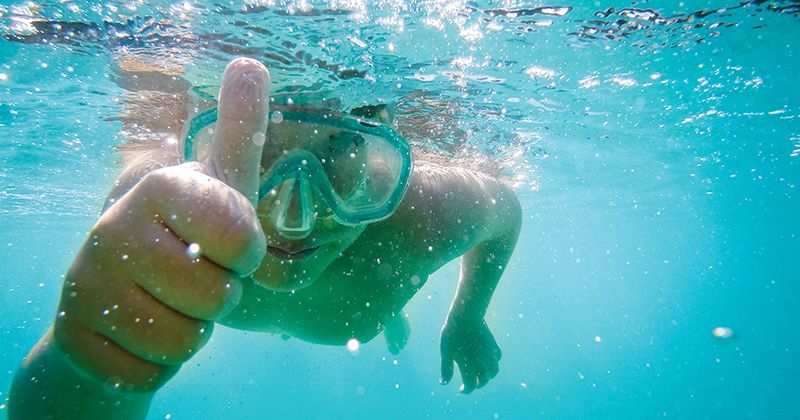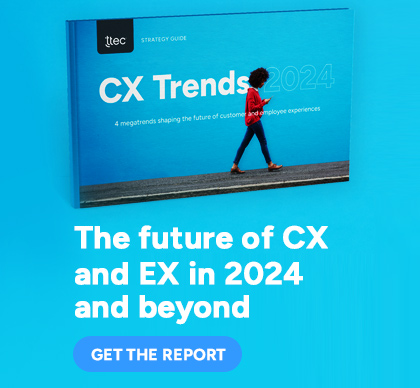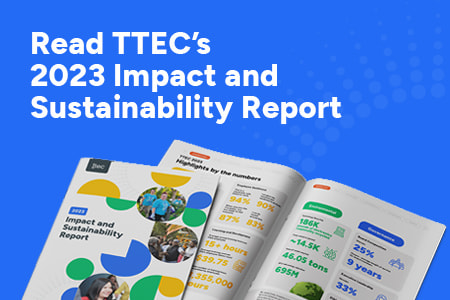Royal Caribbean Dives Into Social Media Support
Strategic customer engagement through social media involves more than likes and smiley faces.

For many travelers, cruises are a memorable experience to be shared with family and friends. From vacations to celebrations, cruise lines invest a lot of time, money, and effort to create once-in-a-lifetime experiences.
Once a cruise is booked, there is plenty of anticipation and excitement for a perfect getaway in the minds of guests. So when an issue or question comes up, it’s critical that the company be ready to interact. These days those interactions have surpassed the traditional call center associate, phone on hand, waiting for complaints to reach them. Facebook, Twitter, and other social platforms have opened the door for clients to connect in the moment, from anywhere. Even when they’re on the ship, in the middle of their trip.
Royal Caribbean International’s director of royal guest experience, Aurora “Laly” Yera-Rodriguez, runs a multichannel customer service center with the goal of creating a memorable customer experience. The center manages a traditional contact center for voice calls and chat, which makes up the bulk of customer service issues. She also oversees a correspondent team to handle emails, letters, and the occasional fax. And there is also an escalations team made up of highly trained associates working to resolve complex and sensitive issues. This team has recently expanded to include social media interactions, where personality, authenticity, and expertise are critical success factors.
“If you’re in guest or customer experience you constantly need to be in a place of evolution and focus on being efficient and making it easy for your guests,” says Yera-Rodriguez.
The social support team handles myriad social-related interactions, from responding to posts on individual social media accounts to tracking hashtags and searching for unsatisfactory issues that may arise during and after a guest’s cruise.
Working with social media tool Spredfast, the team actively monitors and engages with users on Facebook and Twitter. The team carefully watches these two social media giants 24/7 via a social command center, which like the bustling activity of a Wall Street finance firm, is centered around large video screens showing posts and activity in real time. The team tracks customer impressions of their cruises, positive and negative postings, and works to respond in a timely manner.
The escalated support group divides itself between social engagement and social care teams. The social engagement team responds to public consumer posts on Facebook and Twitter. For example, if a guest shares that she recently had a fantastic trip on one of Royal Caribbean’s ships, the social engagement team comments on the post, thanks her, and may even include emojis or other fun icons. The team interacts with guests using guidelines that allow them to show some personality while also professionally representing the brand, Yera-Rodriguez says.
Not all posts are positive. That is where the social care team steps in. This team’s goal is to openly address complaints and resolve issues. Team members respond to negative posts to ask what is wrong, how they may address it, and may move the conversation to Facebook messenger to help resolve the issue more privately and directly. Customers can engage directly in Facebook Messenger or direct message tools on Twitter, as well.
“We want our guests to feel comfortable bringing their concerns to our attention, but at the same time know they’re being taken seriously,” says Yera-Rodriguez.
This was perhaps best shown when a thirsty guest and an innovative staff merged together for a perfect real-time moment via Twitter. It started when a cruise ship guest tweeted from the pool deck that his trip would be even nicer if he had a drink in his hand. The social care team saw an opportunity to show that it was more than just chatter through a screen. Team members contacted ship employees and located his position via the picture he shared. Within minutes, a crew member delivered his “tweet-ordered drink,” says Yera-Rodriguez.
This is an example of using social channels to be more creative (and public) than traditional channels, she says. The team turned a simple statement into a fun and surprising in-the-moment experience. The moment showed the potential that could be tapped through social media service.
“It’s interesting because it’s not only the situation that gets put on blast for the whole entire public to see, but very often your resolution, approach, and response really bring everything full circle,” says Yera-Rodriguez. “It’s a different world than when a lot of us started in this customer experience and service environment.”
Personalizing the experience
This innovative way of approaching clients is where the true art lies in Yera-Rodriguez’s team. Showing a relaxed, fun yet professional personality is difficult enough, let alone publicly in real time. So, just as social media is a constantly evolving landscape of ethos, the team itself needs to stay nimble to meet customers’ needs. Like the currents that shift around their ships, the team needs to flow easily in an environment that can be either calm waters or an approaching storm.
“While learning from what [customers] are telling you, you can continue to make your product better,” Yera-Rodriguez says. To capture this mindset, the social support team throws scripts out the window. She describes this out-of-the-box approach as a way to personalize each issue on a case-by-case basis. While still abiding to the core company policies, associates are the captains of their own ships, creating unique resolutions that solve customer concerns.
One challenge in social media service is speed. Social response time is not only essential to internal metrics, but also to Royal Caribbean’s online reputation. Facebook publicly posts response times on brand pages. According to Facebook, Royal Caribbean International has a response time of “typically replies instantly” above its message button. Yera-Rodriguez cites the team average response time internally as between seven and eight minutes, which the team is trying to reduce.
“It’s not only us measuring us anymore, and I think as contact center leaders we should be mindful that there are other people measuring our metrics too,” says Yera-Rodriguez. “You have to be vigilant.”
These transparent service metrics can impact a company’s overall reputation. According to a 2016 Pew Research Center social media study, 68 percent of U.S. adults use Facebook, and 21 percent use Twitter. Couple this with the cruise line’s 4.2 million Facebook followers and 217,000 Twitter followers, it is paramount the company provides the best customer experience to a mammoth potential client base, who can see clearly how fast its service delivery is.
Finding the right social associates
The social support team is considered a highly sought-after position within the company, Yera-Rodriguez says. Top associates are chosen for the escalation team, and it’s a distinction and reward based on performance and soft skills. Yera-Rodriguez says she that it is a desired role and her associates understand the opportunity and meaning to be part of the team.
“It’s a really good, high-visibility position for them and they like it,” says Yera-Rodriguez. “The kudos that they are getting are also public, so it’s almost like the recognition they are receiving on its own is a motivator to do well in that channel.”
The team’s leadership looks for associates who are comfortable with social media and eager to engage. They must have stellar writing skills and a customer service and marketing background. Selected members further develop a social media voice through two and half months of training. Once they are out on the social media forefront, they must meet daily goals related to performance, productivity, and average response time metrics, Yera-Rodriguez says.

Royal Caribbean’s social media command center.
The team publicly represents a company culture that prides itself on quality, customer-centric experiences. For two years in a row, Royal Caribbean International has been ranked as the “World’s Most Ethical Company” in lodging, leisure, and recreation by the Ethisphere Institute. Its social media page is a public forum and serves as an open book to showcase the firm’s values and culture.
Yera-Rodriguez says the team focuses on real-time interaction and simply being human. Conversations in the real world are not rigidly read off to each other, nor are the solutions plainly laid out in front of you in text. It’s appropriate for the more traditional forms of contact centers to stick to scripts and format, but as companies take the necessary steps to expand into social media pages, cut-and-dried tactics just won’t work.
“We have gotten a lot of good press, public accolades [which are priceless], millions of social impressions…and it’s definitely driven our brand voice to be more vacation-like and less corporate,” Yera-Rodriguez says.




